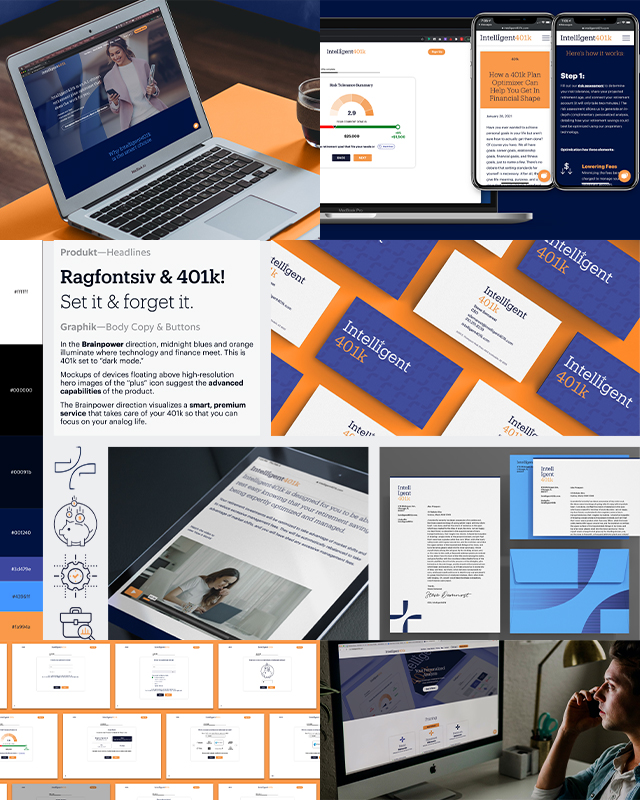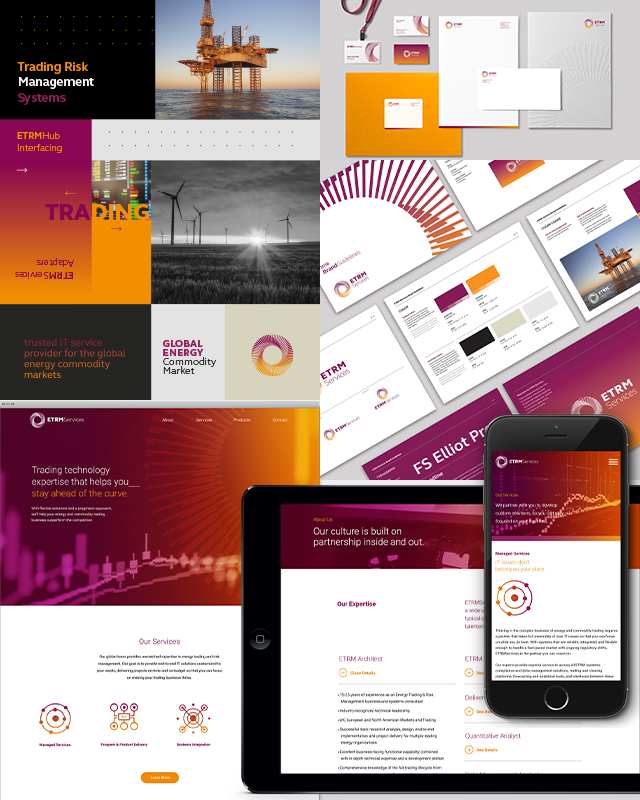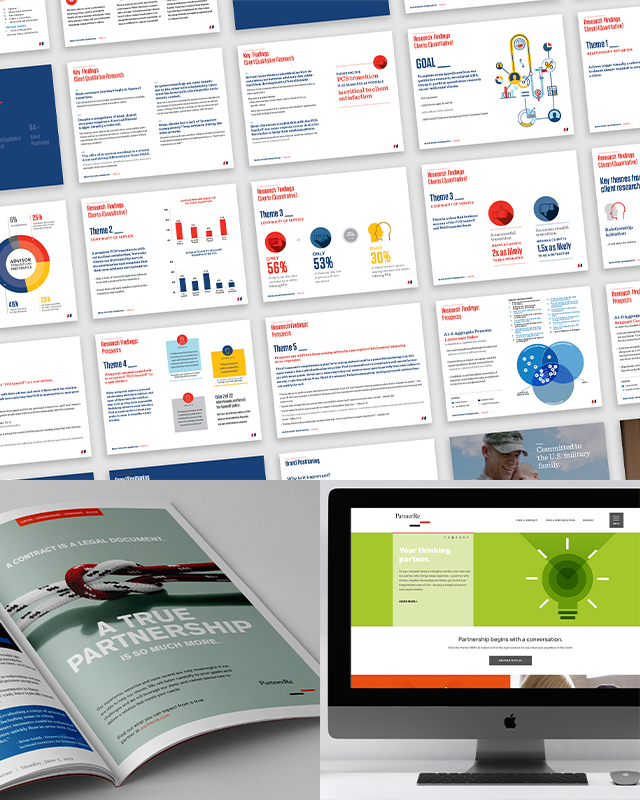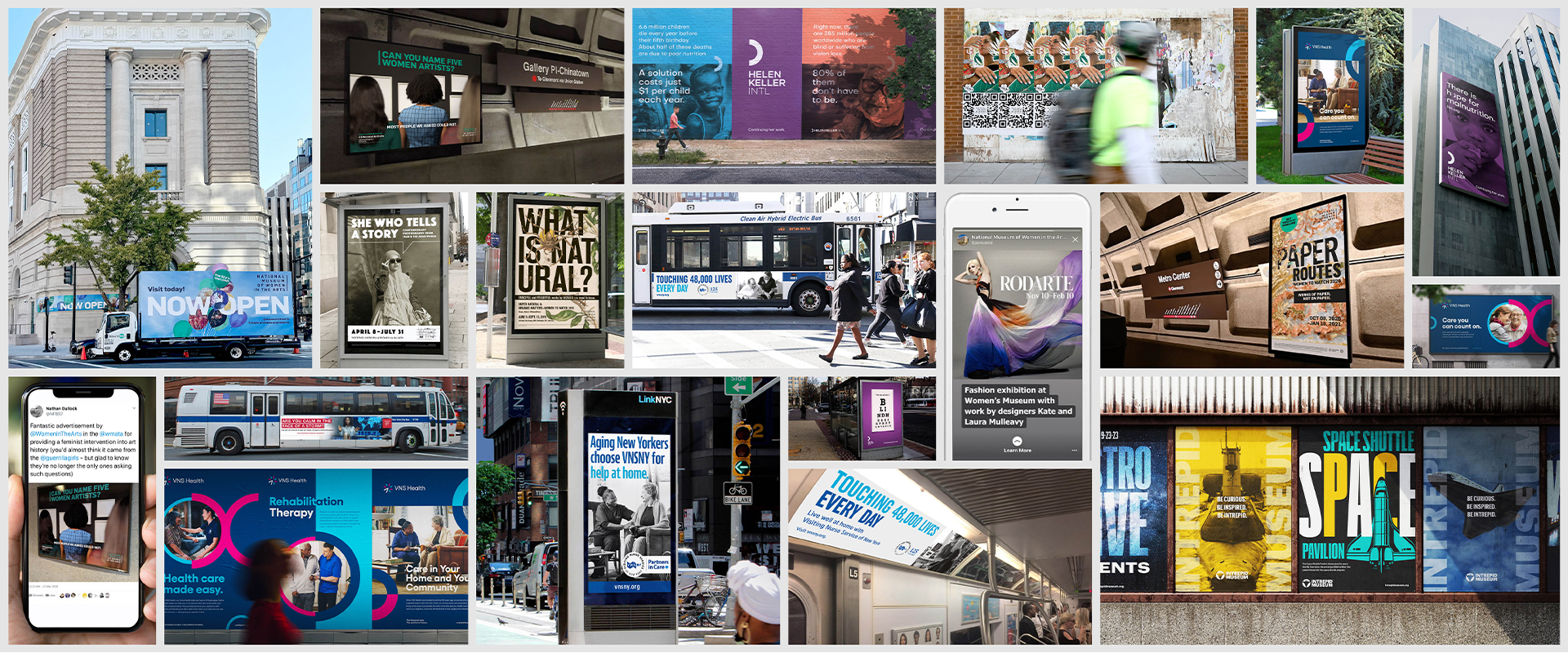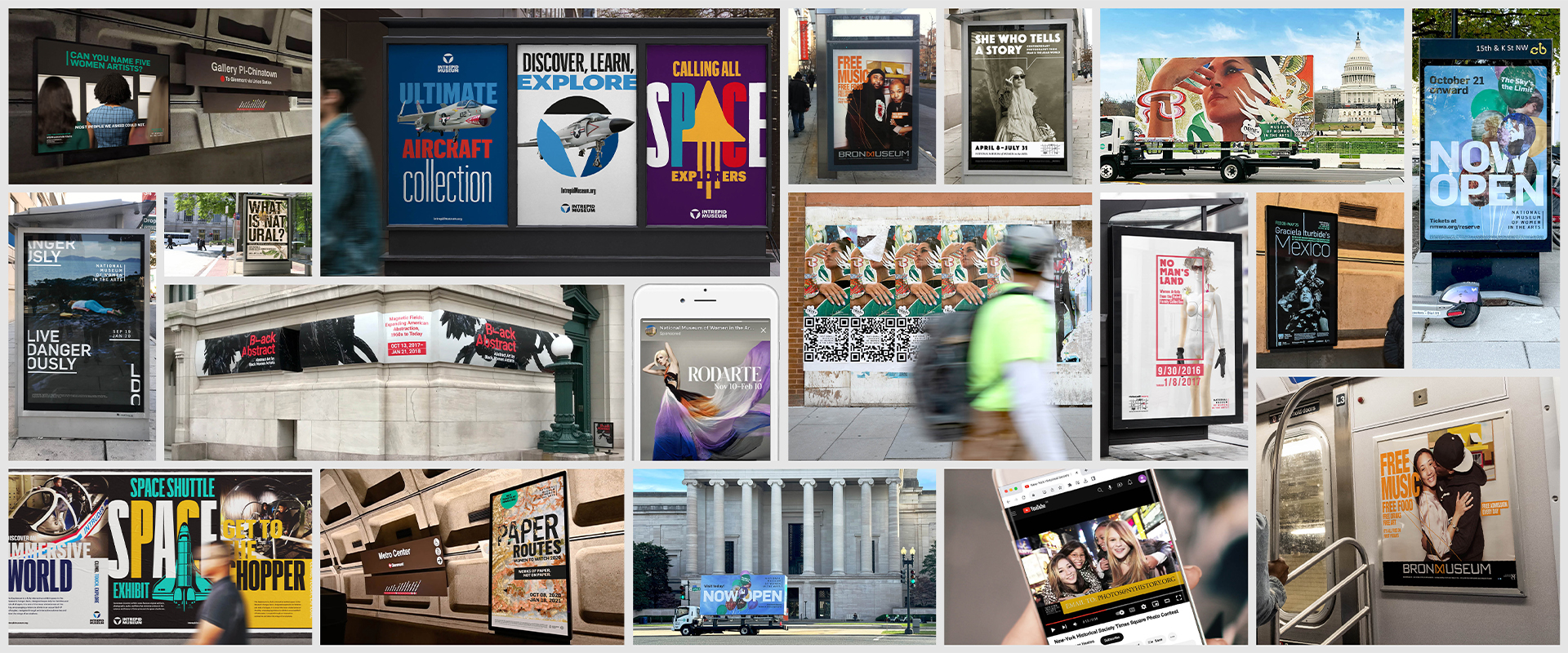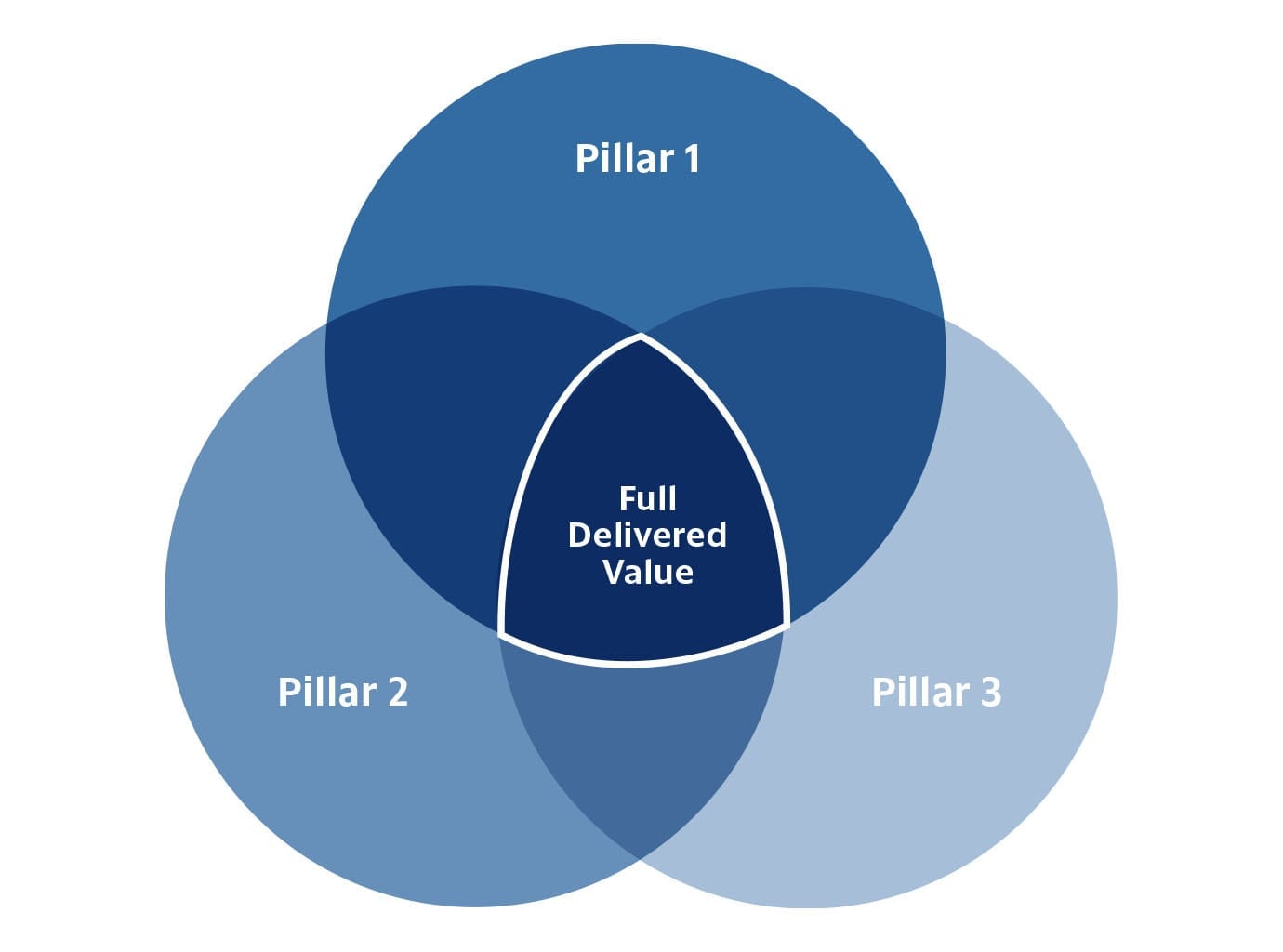The Financial Industry
The financial industry is an ecosystem of trust. We are always responsible to earn the trust we are given. What inspires trust? Track record, rational and emotional benefits expressed simply and clearly, transparency, and yes, the occasional admission of fallibility. No one, no individual, no company, gets it exactly right all the time.
Emotional affinity with a brand and its representatives is essential to establish trust. Decisions are almost always made in the more primitive regions of the brain and then our more advanced homo sapien brain takes on the responsibility of rationalizing these decisions, constructing a logical case for support. As an advertiser in this industry, we cannot forget this foundational truth about human cognition. It is all too easy to believe that the rational mind is in control because it believes that it is. Neuroscience shows otherwise.
Trust is most easily formed between individuals. This is the basis of the profound salience within the financial industry of personal relationships. Transferring the trust one has with individual players to a larger brand that stands behind these individuals is a core responsibility of brand building and advertising. The emotional decision-making process rooted in trust rests at the core, but it needs a complete rational backup and support system as well. So for the purposes of marketing, we have to understand and operate effectively on both the emotional and rational levels. We have to get the emotional connection right and encourage the formation of an aligned relationship between the customer’s needs and our offer. We then need to supply a full and compelling rationale so that the conscious intelligence that is required of professional decision-makers can also be fully engaged. This serves to justify a decision in the eyes of others and for the decision-maker for him or herself.
As the above suggests, intelligence is another hallmark of the industry, but it is not always coupled with introspection or self-awareness. Our overt intelligence can sometimes make us slow to recognize the emotional nature of decision-making, a fact of human nature that remains consistent even in the most professionalized contexts.
In sum, familiarity encourages positivity and advertising is an important tool to encourage familiarity. Financial services is not a context in which we can make an offer via advertising and expect a sale. It is a process through which we lay the emotional and rational foundation for a sales conversation to begin or to advance. Advertising’s primary role in the financial services industry, therefore, is sales support. It is often hoped that advertising can educate, but this is rarely the case. A sales person can engage in a nuanced conversation to present a compelling case that responds with agility to the needs of the customer. Sales conversations have the power to insert new ideas into a recipient’s mind. They have the power to convince. Advertising, by contrast, is not an effective educational tool even if we would like it to be. Its most potent role is to make a brand more familiar and thus primed for other important but parallel efforts. Advertising is the door opener to a more extensive conversation led by the sales team.
Generic knowledge will only take us so far and we strongly believe that there is no substitute for specific knowledge: What are your customer’s needs and expectations? With whom do you compete in the mind of the customer? How do we win? How does advertising help us win? This information is best gathered by asking you direct questions, downloading your institutional knowledge and thoroughly understanding your goals as an organization.
Our process demands that we get to a deep level of understanding of your firm, its competitive position, and its value proposition in order for us to be an effective partner.
Awareness
Building awareness for your firm in a sea of sameness and similar-sounding value propositions that characterize the financial services landscape is an acute challenge. As humans, we like what we know and tend to choose things that we are familiar with, but achieving familiarity is a long-term endeavor.
Advertising is a tool to advance this cause, but before we jump to familiarity, we first have to get noticed. Most advertising is waste because it is invisible and not perceived as delivering any benefit in the moment. The best ads capitalize on each and every opportunity to leave some cognitive impression. Underscoring this point is Howard Gossage’s oft-quoted statement, “Nobody reads advertising. People read what interests them, and sometimes it’s an ad.”
We suggest that our first task is to be noticed, thus opening the window to deliver a message that is memorable enough to be associated with your brand. If done well, this strategy will enhance the efficiency of our entire marketing spend. Unlike the predictability that often characterizes financial services brands, advertising strives to break the rules of expectation.
Responsibility
What equation is right in the mind of our prospect? Is responsibility a proxy for reliability and many other good things? Is it differentiating enough to get you on the prospect’s mental map as we seek to win thoughtful attention in a highly competitive landscape? We can follow the frictionless path of responsibility or any number of other expected and often espoused virtues of asset management firms. But this is, we believe, a low-yield path. Research into the recognized needs of the customer is needed before we would take action but the highest yield is likely to come from differentiation. An axiom we have learned in both B2B and B2C contexts is that it is good to be better, but it is better to be different.
The battle for awareness, positivity, and ultimately selection is always waged in the mind of the customer. Until we have validated your competitive advantage in the mind of the customer, we cannot craft precise messaging or even our full marketing or advertising strategy, but know that we have the capacity to be a fully engaged partner sharing your goals and addressing the challenges of creating effective marketing messages or advertising campaigns that are attuned to our fickle and overly advertised-to world.
Our Promise
We strongly believe that the best work comes from engaging as an extension of your team, not as a vendor. This means that our working relationship must be founded on trust and an open exchange of ideas and information. We have found these tenets to be the hallmark of every successful partnership. We will openly examine and learn from mistakes. Trust also sets the stage for robust debate about matters of consequence. In this forum, collaboration leads to the most elegant solutions. This debate allows for all members of the team to commit to decisions made. Commitment, in turn, makes it easier for all members of the team to hold each other mutually accountable for learning and performance. Together, this foundation makes it possible for the entire team to work enthusiastically toward the achievement of shared goals.
Our promise is to make this level of teamwork our operative ecosystem, to devise and execute genuinely effective advertising for your firm. We should only enter this engagement if this is what we all want. Life is short and we want to do work that has meaning. Our working relationship is a key element in our ability to do meaningful work as an integral part of your extended team. We trust you feel the same.
